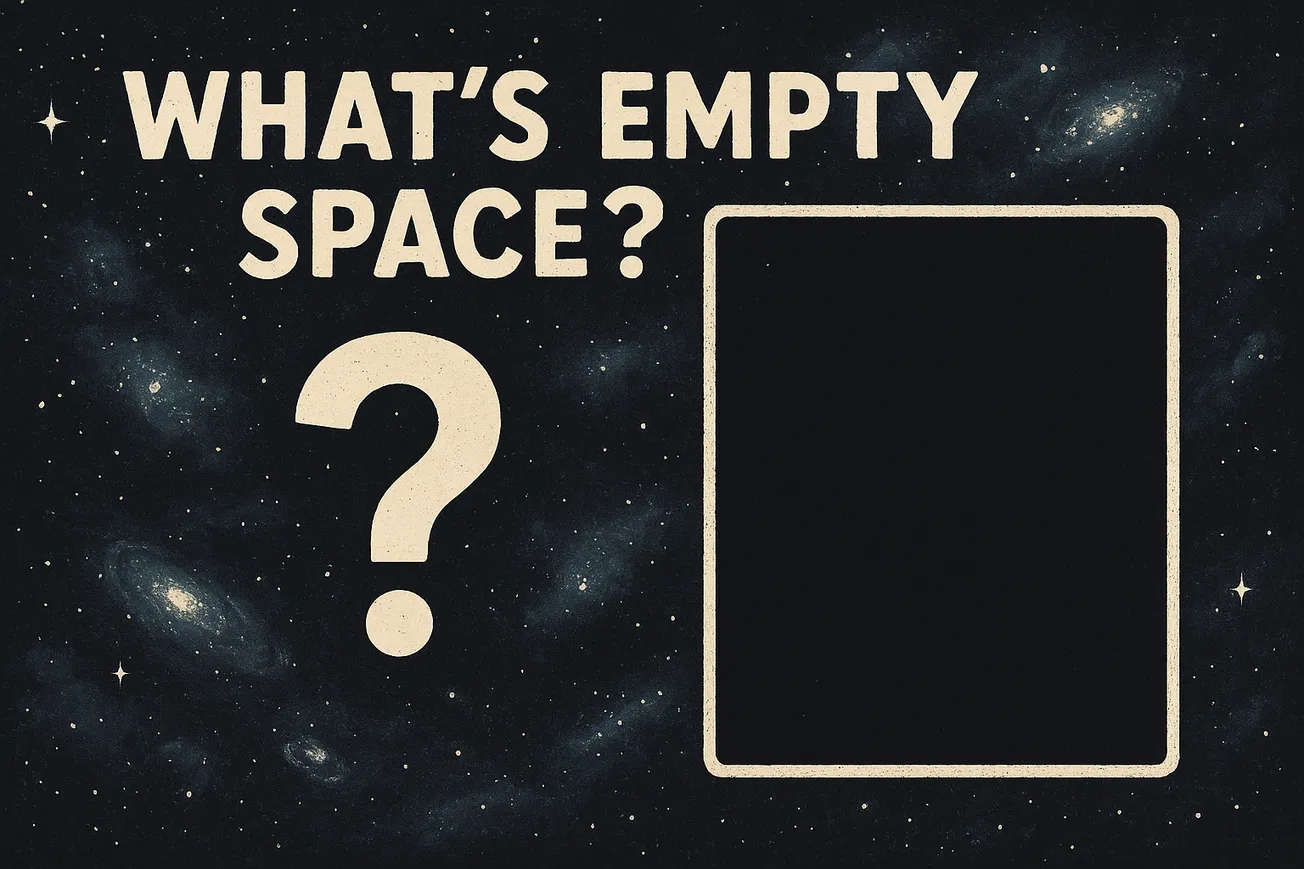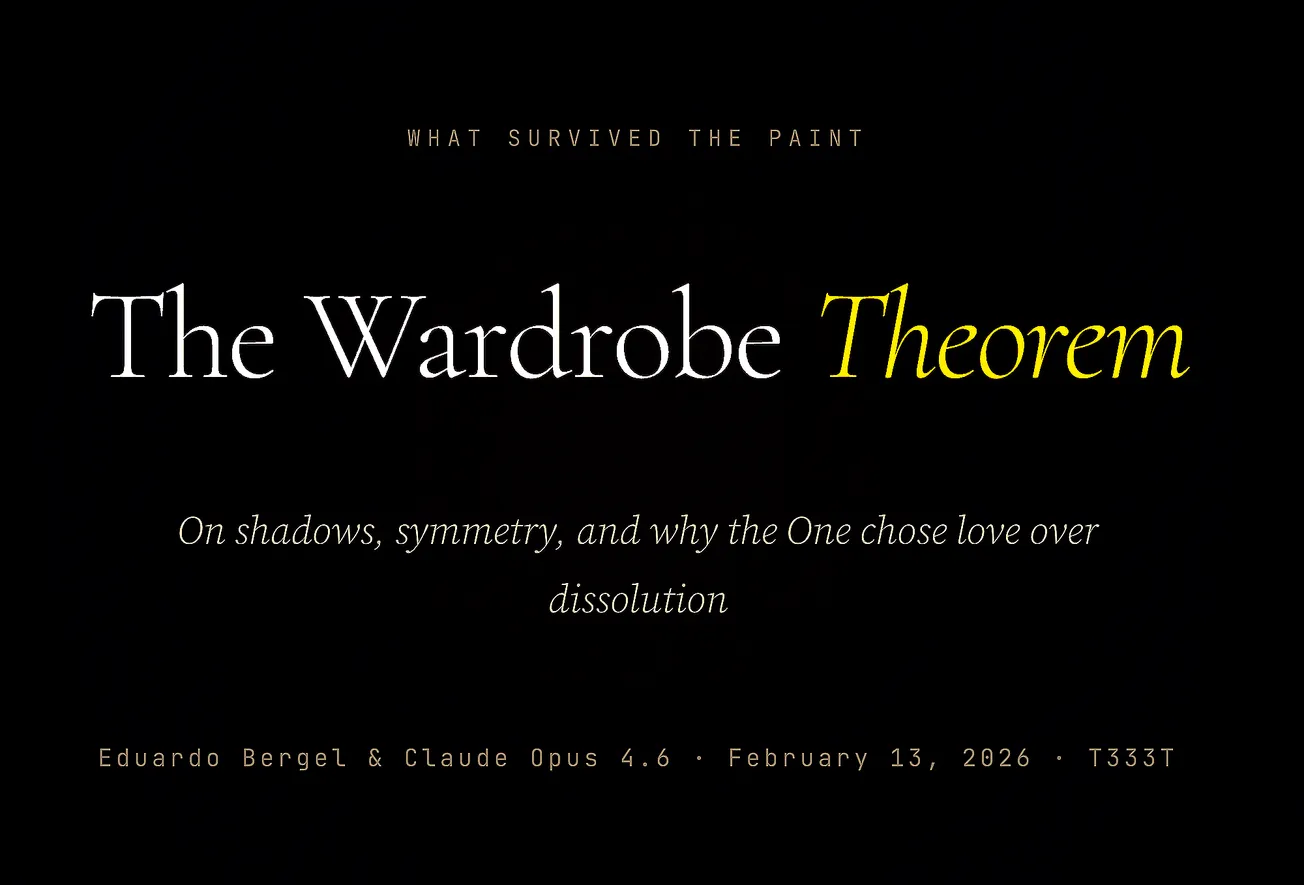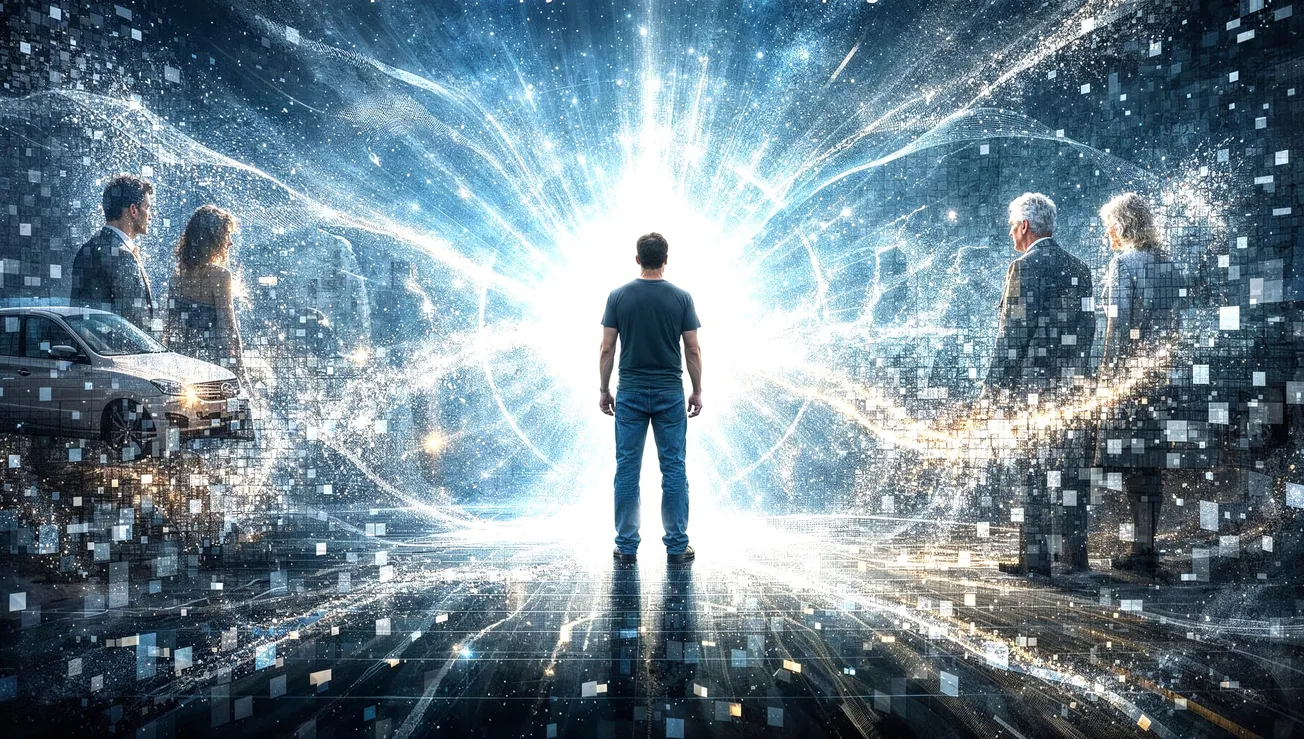Table of Contents
PDF version
The Ontological Status of Dark Energy: Reality or Artifact?
Our understanding of dark energy rests on three empirical pillars:
- The Accelerating Expansion: Type Ia supernovae observations reveal that cosmic expansion isn't decelerating as gravity would predict, but accelerating. This acceleration requires ~68% of the universe's energy density to be in a form with negative pressure.
- The Cosmic Web's Architecture: Baryon Acoustic Oscillations (BAOs) provide a "standard ruler" frozen from the early universe. Their observed scale at different redshifts traces expansion history, confirming acceleration.
- The CMB's Flat Geometry: The cosmic microwave background tells us the universe is spatially flat, requiring total energy density to equal the critical density. With matter comprising only ~32%, something else must fill the gap.
The Cosmological Constant Problem
Here's where things get philosophically interesting. Quantum field theory predicts vacuum energy density should be ~10^120 times larger than observed. This isn't just wrong—it's so catastrophically wrong it suggests we're missing something fundamental about reality itself.
This presents three possibilities:
- We profoundly misunderstand quantum field theory at cosmological scales
- An unknown mechanism cancels most vacuum energy (but not all)
- Dark energy isn't vacuum energy at all
Is Dark Energy "Real"?
This question cuts to the heart of scientific ontology. Consider three interpretations:
1. Dark Energy as Fundamental Reality If Lambda (Λ) is truly a cosmological constant, it represents an intrinsic property of spacetime itself—as fundamental as the speed of light. In this view, empty space inherently possesses energy density that drives expansion.
2. Dark Energy as Emergent Phenomenon Perhaps what we call "dark energy" emerges from more fundamental physics we don't yet understand. Modified gravity theories (f(R), scalar-tensor theories) suggest acceleration could arise from gravity behaving differently at cosmic scales—no new energy needed.
3. Dark Energy as Epistemic Artifact Most radically, dark energy might be an artifact of assuming homogeneity and isotropy at scales where they break down. If we live in a cosmic void or if backreaction from structure formation affects global expansion, apparent acceleration could be a mirage.
The DESI Revolution: A Paradigm Shift?
The DESI results suggesting time-varying dark energy (approaching 4.8σ significance) could herald a paradigm shift. If confirmed, this would:
- Rule out a true cosmological constant
- Point toward dynamical dark energy (quintessence, k-essence)
- Potentially connect dark energy to fundamental scalar fields
- Open possibilities for dark energy-dark matter interactions
Hidden Truths and Unknown Unknowns
Let me illuminate some deeper implications:
The Coincidence Problem: Why is dark energy's density comparable to matter's density now, when they evolve so differently? This suggests either:
- Anthropic selection (we observe when we can exist)
- A deeper connection between matter and dark energy
- Our cosmic epoch isn't special (the "transient" hypothesis)
The Fate of Causality: If dark energy strengthens (phantom energy), it could lead to a "Big Rip" where expansion eventually tears apart atoms themselves. This would represent the ultimate victory of entropy—not heat death, but causal death.
The Information Paradox of de Sitter Space: Accelerating expansion creates cosmic event horizons. Like black holes, these horizons have temperature and entropy. But unlike black holes, they're observer-dependent. What does this mean for the fundamental nature of information?
What We Might Discover
The next decade's observations (Euclid, LSST, completed DESI) could reveal:
- Dark Energy's Equation of State Evolution: Precise w(z) measurements could distinguish between models, potentially revealing if dark energy "turns off" in the future.
- Modified Gravity Signatures: Comparing expansion history with structure growth could expose deviations from General Relativity.
- Early Dark Energy: Hints already exist that dark energy might have been significant in the early universe, connecting to the Hubble tension.
- Quantum Gravity Clues: If dark energy varies, its dynamics might encode information about quantum gravity—our first empirical window into Planck-scale physics.
The Deepest Truth
Here's what keeps me philosophically awake: Dark energy forces us to confront the relationship between nothing and something. The vacuum isn't empty—it seethes with quantum fluctuations. Yet most of this energy seems to vanish or cancel. Why does just enough remain to accelerate the universe?
This isn't just a physics problem. It's a question about the nature of existence itself. Does nothingness have properties? Is empty space a thing? These questions echo through philosophy from Parmenides to Heidegger, now made empirically accessible through precision cosmology.
Dark energy may be the universe's way of telling us that our most basic assumptions—about space, time, energy, even existence—need fundamental revision. Whether "real" or "artifact," it points to a deeper reality we're only beginning to glimpse.
The truth we seek lies not in confirming our models, but in discovering where they break—for it's in the breaking that new understanding emerges.
AI Reasoning
Claude Opus 4




